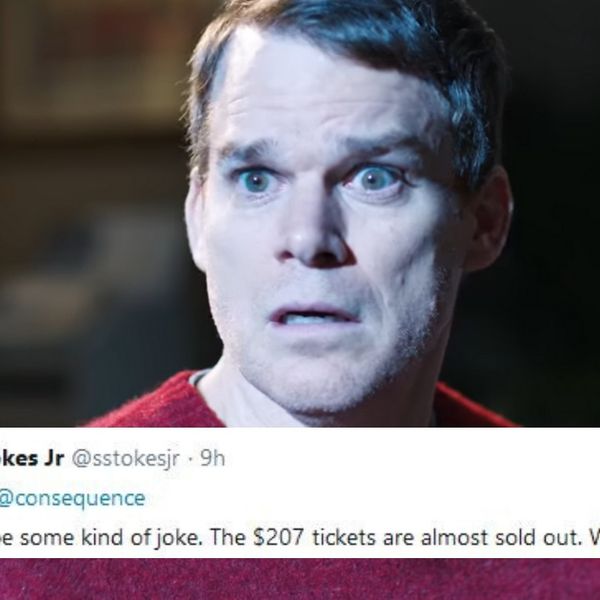February, 2003, LOS ANGELES - I always watch the news as I go about my morning exercise routine. When I turned on my television on the first morning of February to begin my workout, I saw a graceful white line streaking across a pure blue sky on the screen. It looked beautiful. What chilled me was the grave tone in the announcer's voice and the words, "BREAKING NEWS" across the bottom of the screen. "The Space Shuttle Columbia is breaking up across the Texas sky. All seven astronauts are believed lost," came the horrifying announcement. I stood there, fixed on the screen. It was incredible - it was happening again, seventeen years after the Challenger disaster.
Fragments of information came tumbling in. There may have been trouble from the very beginning, we were told, with problems from the left tail wing. The shuttlecraft Columbia was very old, the oldest in the fleet - its maiden flight having been back in 1981. Photos of the astronauts on board the Columbia were flashed on the screen. It was gut wrenching to watch - two women, one born in India; five men, one African American, who, as a youth, had been inspired by Star Trek; six Americans and one Israeli national hero. My heart broke for these courageous men and women and their grief-stricken families. I saw these astronauts as the real-life ancestors of the fictional characters we portrayed on Star Trek. My co-stars and I were there for the rollout of the very first space shuttle - named Enterprise - back in September of 1976. I always felt that the space program was a part of my life. My spirit soared with the astronauts every time they blasted off into the sky. Now, I was watching seven of them plummeting down in a fiery streak.
This terrible tragedy may be the wake up call for a nation that had become too distracted and lost its sight on the great human challenge that lies out in space. That challenge is humankind's eternal quest for knowledge. Christopher Columbus sailed into the unknown, beyond the horizon of his era, to open up more than a new world, but old, congealed minds as well. Lewis and Clark ventured beyond the mountains that defined the barriers of their time to expand, not only a nation, but the boldness of its vision as well. President John Kennedy's stirring words to put a man on the moon before the end of the 60's galvanized, not only the spirit of America, but began breaking through the knowledge barriers of those days. The enlarged information bank produced, not only expanded knowledge of space, but greater understanding of this, our own planet. That knowledge, in turn, produced new discoveries that benefited humankind, created new industries, advanced health care processes and developed medicines that could not have been otherwise produced. Our destiny is in space exploration.
For much too long, the United States' commitment to space has been a neglected priority. NASA has been an under-funded orphan. Necessary equipment upgrades have not been made. New technologies have not been developed. Too tragically, we have had to use equipment past its prime.
The Columbia tragedy has become a powerful challenge to President George Bush's much-challenged set of priorities. Are tax cuts for millionaires more in our national interest than funding commitment to our space future? On the Columbia, experiments were being conducted that dealt with clean energy development, medical tissue cultures that could enhance the quality of human life, insect studies that would improve knowledge of our environment and a whole host of breakthrough studies. Will tax cuts for the rich get our slack economy moving better than an investment in space exploration? The knowledge gained from our space venture would develop new industries, new jobs and energize the global economy. Tax cuts would only deepen our Federal budget deficit and raise interest rates. Can tax cuts for millionaires improve our relations with our international allies? Our space program has been a pioneer in global teamwork with this planet's diverse people working together in concert - just like on Star Trek. Yet, what we hear from George Bush is a torrent of aggressive rhetoric of unilateral action unaccompanied by increased funding support for the space program. His primary commitment seems to be to millionaires.
The crash of the Space Shuttle Columbia was a shocking tragedy. The alarm has now been sounded. From the charred debris scattered over a hundred miles across Texas and Louisiana, the NASA program must rise again like a Phoenix. We owe this to the memory of those heroic science- adventurers of the Columbia. A re-energized NASA must be our tribute of gratitude to those astronauts who gave the last full measure of their devotion to our eternal quest for knowledge.
 David M. Brown, Rick D. Husband, Laurel Clark,Kalpana Chawla, Michael P. Anderson, William C. McCool, Ilan Ramon
David M. Brown, Rick D. Husband, Laurel Clark,Kalpana Chawla, Michael P. Anderson, William C. McCool, Ilan Ramon









